Pelagic Partners’ Captain Nikolaos P. Karimalis takes a trip on the Trireme OLYMPIAS
07:02 - 14 December 2024
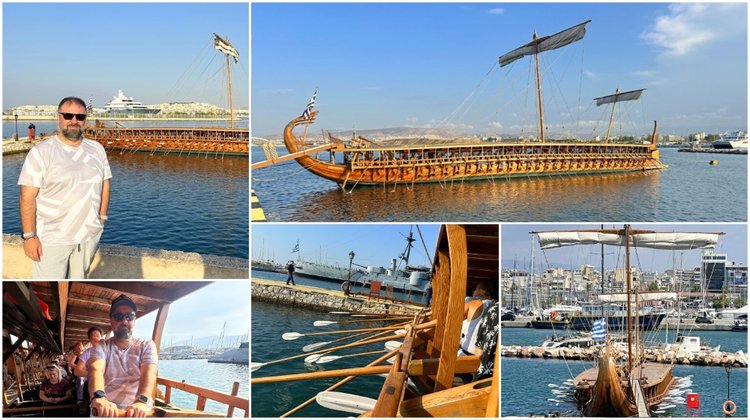
Pelagic Partners’ Operations Manager, Captain Nikolaos P. Karimalis, was recently invited by the Hellenic Navy to attend a live rowing exhibition of the Trireme OLYMPIAS, a unique functional replica of the 5th century BC Athenian Trireme.
Built by the Hellenic Navy between 1985 – 1987, the OLYMPIAS is a reconstruction of an ancient Athenian Trireme and is the only commissioned vessel of its kind in the world’s navies.
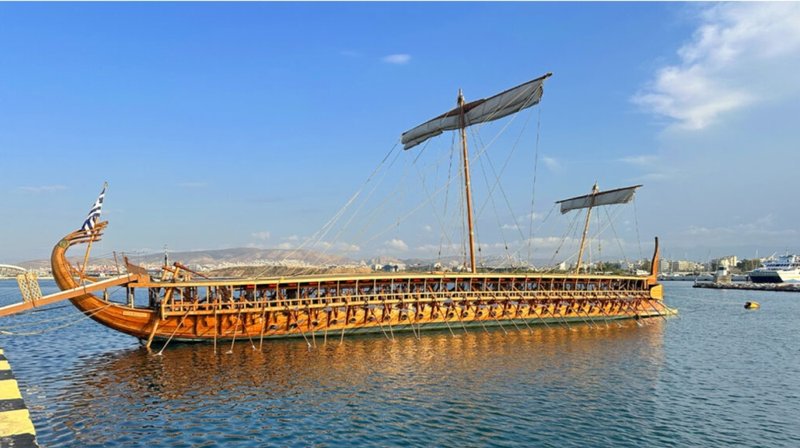
Attendees of the exhibition were invited onboard to take part in a live interactive demonstration of the vessel’s capabilities and Captain Karimalis, a seasoned Master Mariner with over two decades of experience in the maritime industry, took to the oars to assist in sailing the OLYMPIAS from 09:00 to 10:30, a distance spanning about 5 nautical miles.
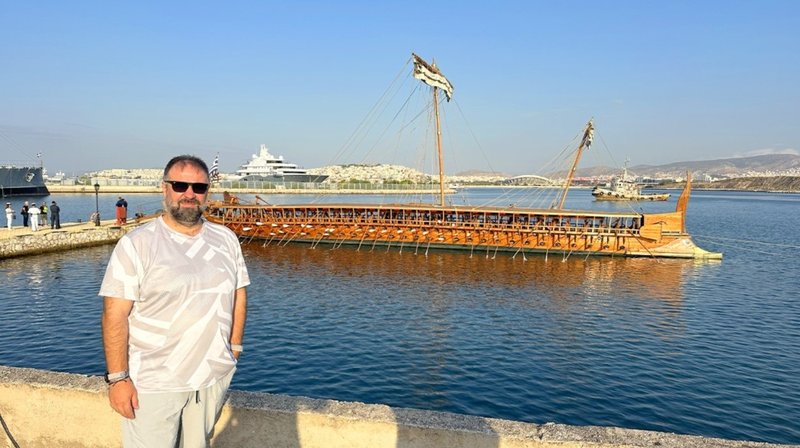
The design of this agile warship was based on writings, illustrations, and historic findings, and the final construction measures at 121ft and weighs 47 tonnes. This ancient ship was designed as a fast attack and light displacement vessel, capable of sailing safely in shallow waters due to its manoeuvrability and small draft.
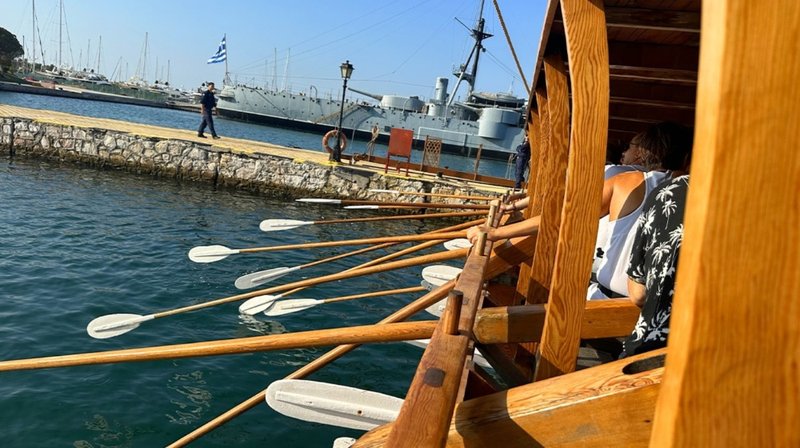
The galley was also equipped with a bronze bow ram that weighed over 200 kg, the original of which is on exhibition in the Piraeus archaeological museum. When in operation, this vessel could accommodate 200 crew, including 9 general duty sailors, 10 spearmen, 4 archers and 170 oarsmen, and could reach sailing speeds of up to 8.6 knots.
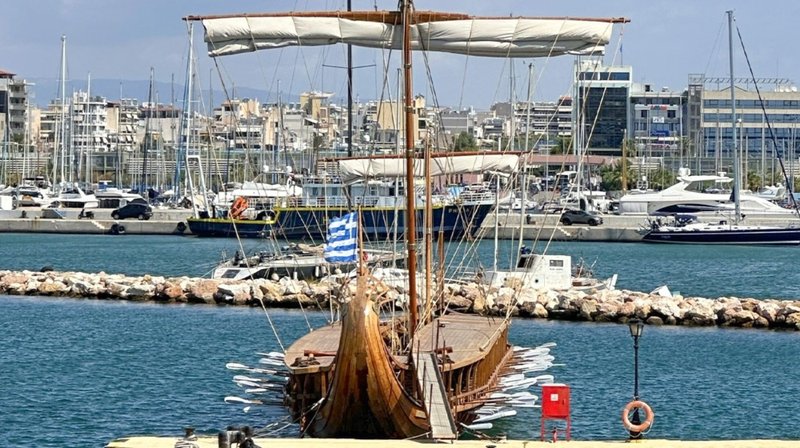
The Trireme’s speed and flexibility made it the dominant warship in the Mediterranean from the 7th to the 4th century BC and was used for more than 400 years before it was superseded by more modern heavier galleys, with the development of the Quadriremes and Quinquereme. The Triremes played a vital role during the Persian Wars, which culminated in the Battle of Salamis. The Triremes was the main instrument of freedom used by the Athenian General Kimon, who aimed to free Cyprus from Persian rule in the 5th century BC. During the siege of Kition he was taken to his deathbed. Before dying, he urged his officers to conceal his death from both their allies and the Persians. Following victory, his demise was revealed, prompting all to proclaim that even in death, he could defeat his enemies.
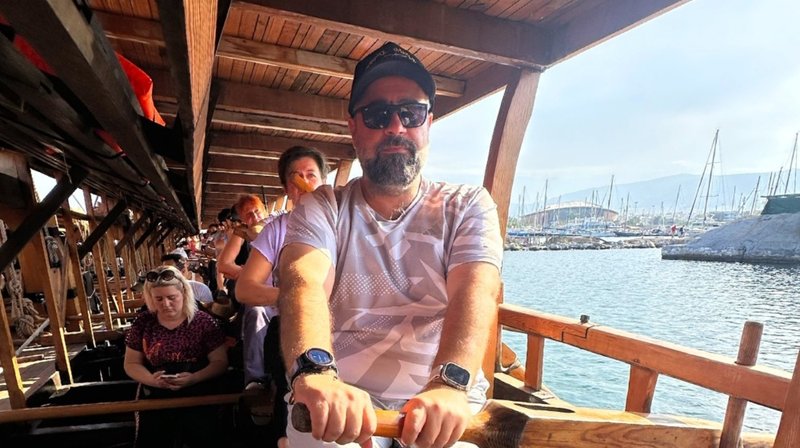
On its website, Pelagic Partners said Captain Karimalis thoroughly enjoyed the chance to gain a small insight into the lives of the ancient seafarers that commanded control of the Aegean Sea thousands of years ago and laid the foundation for Greece’s rich maritime heritage. Karimalis said that it was fantastic to experience first-hand the speed and agility of the ancient war vessel, and although he’s no stranger to the trials and strains of a life at sea, he was pleased that the advent of modern propulsion technology meant that manpowered vessels were no longer a staple of modern maritime operations. He also thanked the Hellenic Navy for inviting him to attend this special voyage.
(Source: pelagic-partners.com)

